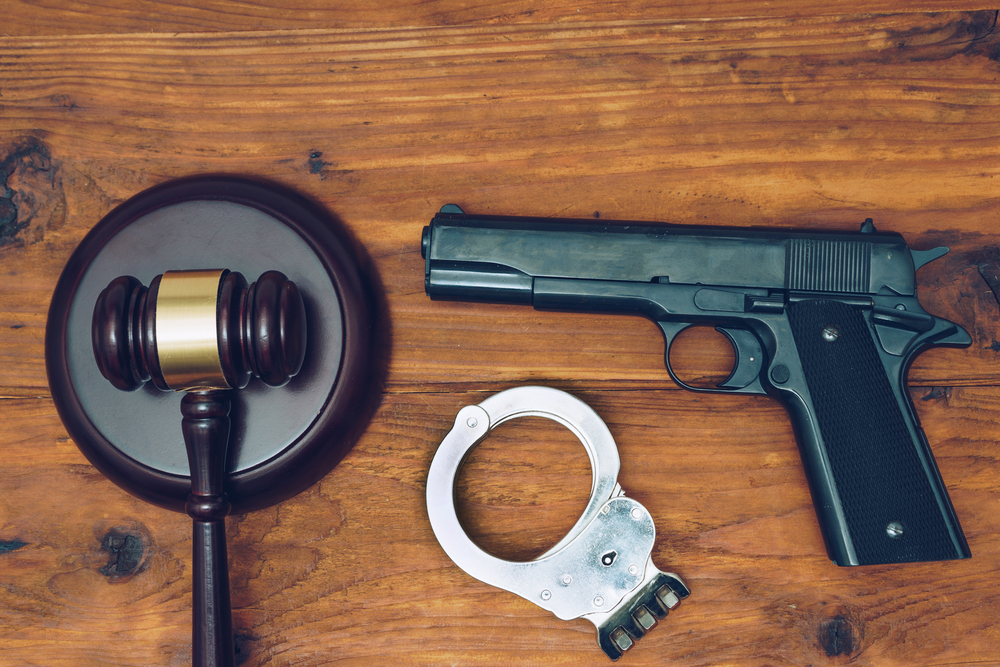Fighting firearm charges in Canada requires experienced legal defence—Affordable Defence is here to help. These offences carry serious penalties, and trying to handle them on your own can be overwhelming. Unlike in the U.S., Canadian firearm laws focus on public safety and are strictly enforced.
If you’re facing a firearm charge in Ontario, building a strong, strategic defence is essential. Even a simple possession offence can lead to lasting legal consequences. Contact Affordable Defence today for a free and confidential consultation.
What does the Criminal Code say about firearms?
Section 86 of the Criminal Code says the following:
“Every person commits an offence who, without lawful excuse, uses, carries, handles, ships, transports or stores a firearm, a prohibited weapon, a restricted weapon, a prohibited device or any ammunition or prohibited ammunition in a careless manner or without reasonable precautions for the safety of other persons.”
If you fail to follow the regulations of the Firearms Act regarding firearm possession and usage, you may be charged with either an indictable or summary offence. Punishments may include extensive jail time.
Offences are generally considered “hybrid” and proceed as a summary or indictable offence largely dependant upon the level of perceived risk to the public and whether the accused’s actions posed a potential threat to another person.
Now you understand more about the firearm laws in Ontario, it helps to understand how a firearm charge can be fought…
Refuse consent to search your home for a firearm
Despite what you may think, there is no legal requirement to consent to a search of your home or car if the police are investigating you for a firearms offence and request it.
Even if the police have a warrant and forcibly enter your home, make a note of their actions and discuss later with your criminal defence lawyer.
Frequently, police exceed the powers provided to them under a warrant and the prosecution’s argument may be weakened in such cases.
Refuse to answer questions and ask to speak to your lawyer
You are legally required to provide your name and show registration, licence, or authorization to possess a firearm if police arrest or detain you in connection with a firearms offence.
Beyond that, you are entitled to remain silent if police officers start asking you questions or requesting a statement. Speak to your criminal defence lawyer first rather than risking saying anything that could harm your defence.
Do not handle any firearms if you are charged
Do not make the mistake of potentially committing another offence while you are facing a charge for a firearm offence.
If you’re charged, your right to handle firearms (licence, authorization, and registration) will likely be revoked, along with your weapon(s).
Until your case has been processed by the Ontario courts and your licence reinstated, do not get caught handling any firearms or a new criminal charge may follow.
Work with your lawyer to prevent losing your firearm
If the police seize your guns during the process of arresting and charging you for a firearms offence, you may end up forfeiting them to the government permanently if you do not take action to prevent that from happening.
Your defence lawyer at Affordable Defence can represent you at a hearing (usually 30 days after the date of seizure of your firearm) and present an argument why you should not have to forfeit your weapon.
Attend court dates and comply with conditions
It is important to follow all court orders if you have been arrested and charged. You will be asked by the court to provide fingerprints and may be requested to appear in court at a particular time on a particular date.
Attend all dates as required and comply with any conditions imposed on you following your charges or you run the risk of being charged with another criminal offence and making a bad situation worse.
The criminal defence lawyers at Affordable Defence are experienced in defending gun charges and have helped many firearms owners not only maintain their freedom but retain their firearms privileges.
Start with a free case evaluation by calling us at 613-223-4089 or contact us directly online. .

